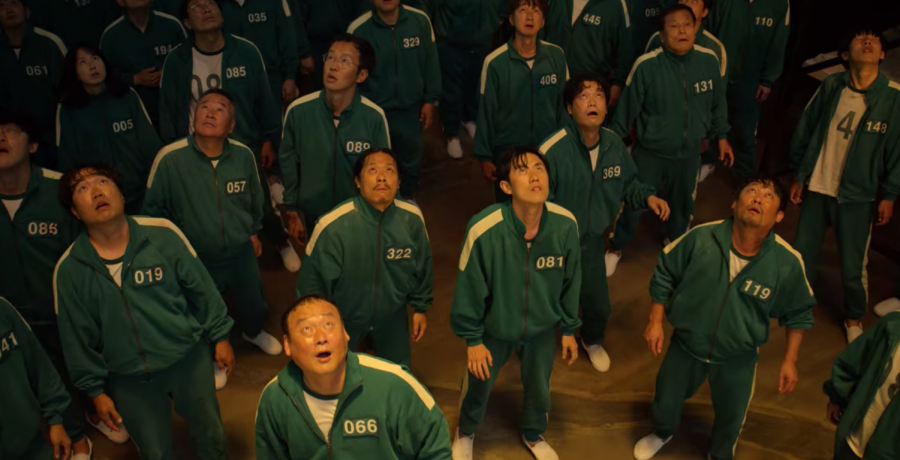A Buried Reality Behind Squid Game
Squid Game has taken the Groton community by storm with a compelling plot. An enclosed circle of billionaires organizes the Squid Game as 456 indebted criminals play rounds of challenges in order to win 45.6 billion won. Yet there is only one winner, with the others promptly eliminated and killed. If you were in this situation, would you also call the number behind the business card?
The expected answer is “no;” the event is far from fair. Manipulating people at the bottom of the social pyramid, the contest emphasizes the “fairness” of the game. Yet the system considers women and elders weak as the imbalance of the power complex is evident. The inequality continues with the increasing gap between the rich and the poor.
Sagata Das ‘25 believes the message of the series is “how capitalism and society are metaphorically killing off poor people.” Despite the survival rate of 0.2%, money brings the participants back. The wealthy masked spectators remind viewers of the Roman gladiator games since they target people who are in desperate need of help as a source of entertainment.
Having initially proposed the scenario ten years ago, Squid Game director Hwang Dong-hyuk reveals how many companies rejected the plot due to the unrealistic brutality of it. Although the cruelty and violence exaggerate the scenes, Squid Game has now inched closer to reality. The drastic characteristics of the setting may seem distant; however, they symbolize the current world, conquered by desires for wealth.
In a survey completed by twenty-eight students, over 85% rated the show 8 or above on a scale of 1 (unenjoyable) to 10 (very enjoyable). As many responses describe the concept of socio-economic disparity within the show, the central theme was well-conveyed to the audience.
As Gi-hun returns with millions of dollars and realizes that his loved ones left, the series conveys how much power money holds today. Instead of working diligently to earn money, many choose unconventional ways to do so, including gambling and stocks. Korean children’s games, played in the series, such as red-light-green-light call to mind the naive childhood in contrast to the competitive, money-driven society. This deeper message draws the audience into the hidden ideas of the show, topping viewership charts.
Additionally, the distinct visuals and extensive character development contribute to the popularity of the show. Certain Korean slang or customs are transposed into inaccurate subtitles and interrupting dubbing. Yet, most responses on the survey stated that language was not a barrier due to the coherent visual aspects. The sets portray the Korean traditions that may seem foreign to the viewers, establishing the tone with colors and arrangements. The characters are also well-developed through their distinct reasons for participating in the game. From debts to families, the motivation of each player differs.
Impacted by the pandemic, the world struggles with economic disparity and classism. Squid Game reminds us how we should not be only concerned with our entertainment like the rich observers, but also reflect back onto the society we live in.






